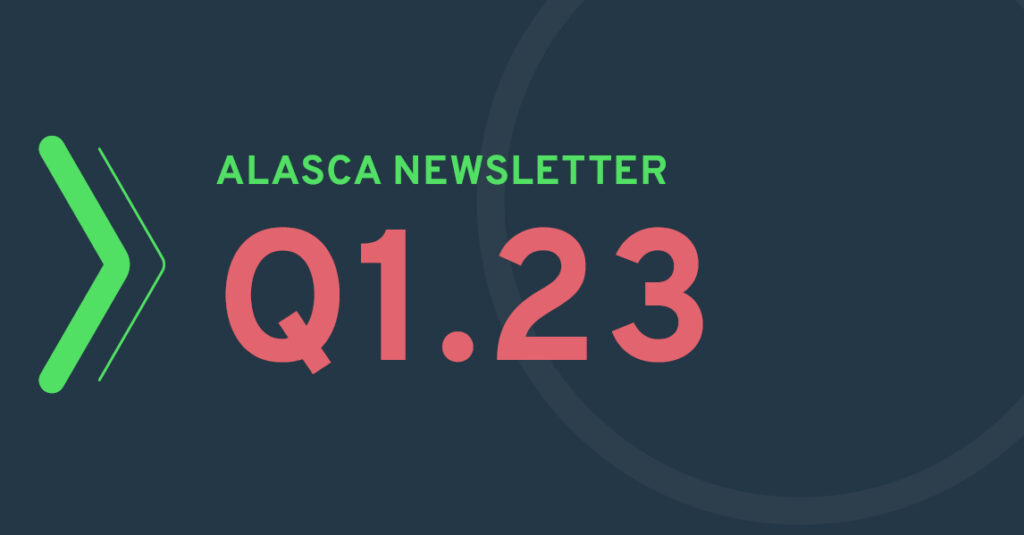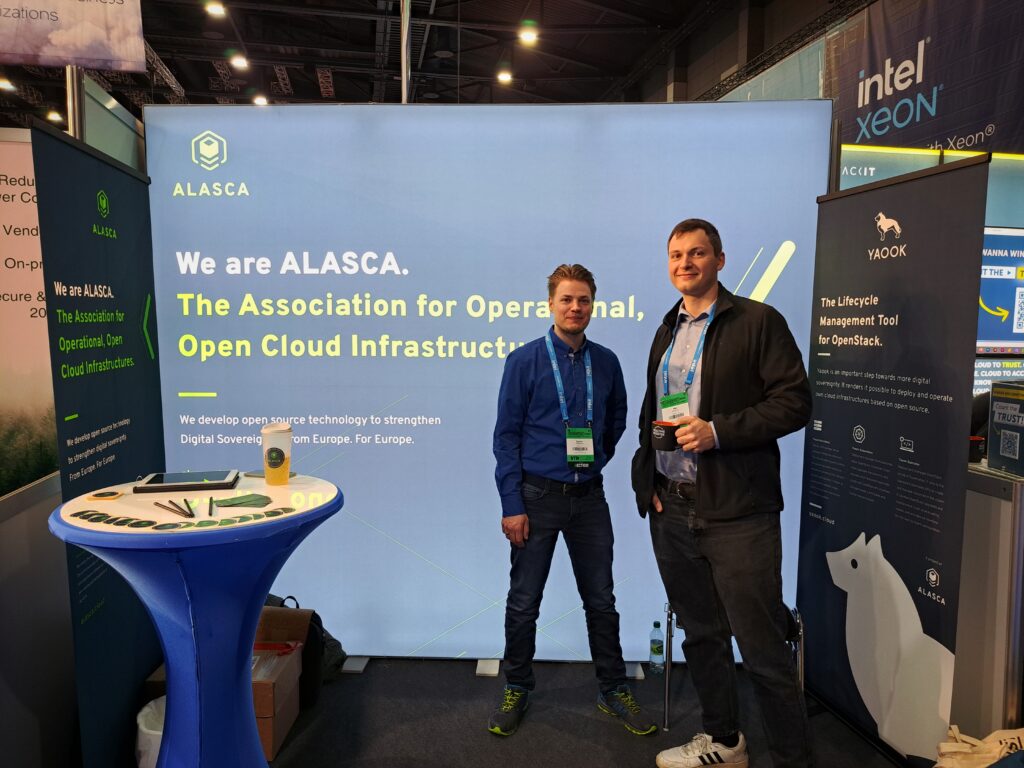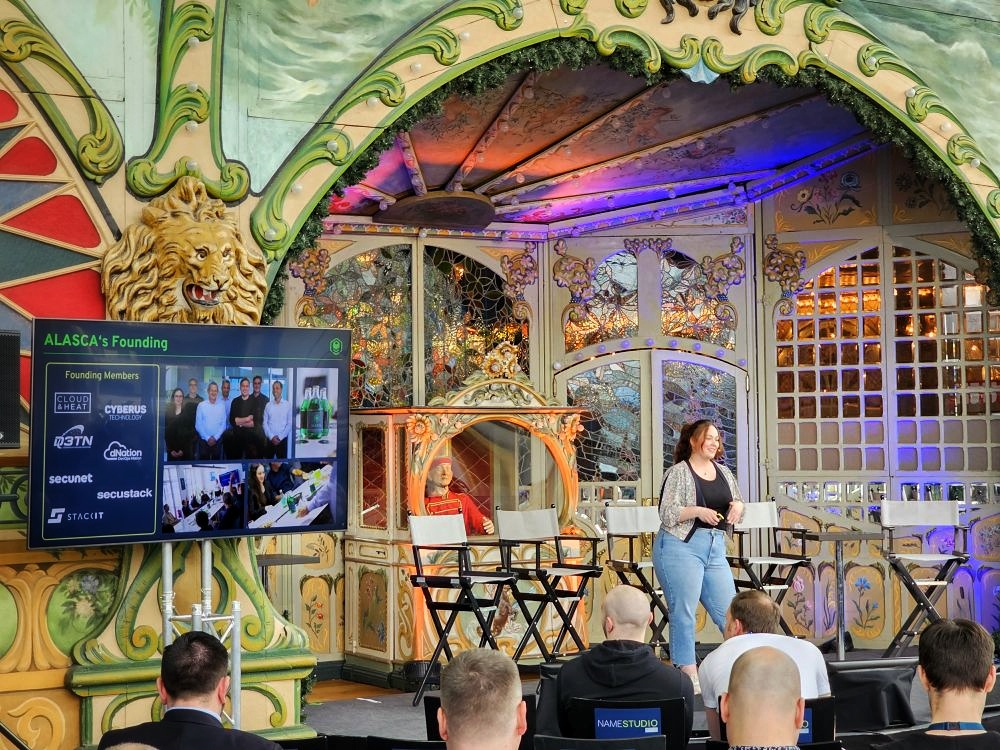Foreword
Dear members, dear interested parties,
We are very pleased to be able to send you this first newsletter. With this newsletter we want to give you a quarterly insight into the work of our association. It will cover events and activities of the association as well as technical developments in the projects we are responsible for.
So what has happened in the first few months? ALASCA was not born out of thin air, but has been slowly brought to life over the last four months: ALASCA was officially founded at the end of 2022. After a few bureaucratic hurdles had been cleared, the official registration in the register of associations took place in December 2022. The official announcement of our foundation in January 2023 brought us predominantly positive voices from the industry and the open source community.
Due to enquiries about parallels with the Open Source Business Alliance (OSBA) and the Sovereign Cloud Stack (SCS), we published a joint statement with Kurt Garloff to classify our relation to each other. Close coordination between OSBA and ALASCA will ensure that the strengths of both organisations can be used profitably for the common good and to strengthen Digital Sovereignty in Germany and Europe.
We have also started to establish initial formats and events. For example, in April 2023 we are already inviting people to fourth ALASCA Tech Talk, a monthly online format that presents technologies relevant to ALASCA and also dares to look beyond the technological horizon.
Thank you for your interest in the topics of digital sovereignty and especially open source projects, which we would like to advance together with you.
Many greetings
Marius Feldmann
Board of Directors ALASCA e.V.
RECAP: ALASCA at the CloudFest in Rust
From 21 - 23 March 2023, ALASCA presented itself to the public for the first time. Within the framework of this year's CloudFest various companies from the cloud industry came together on the grounds of Europapark Rust. In addition to our small stand, on which we presented ALASCA itself as well as our focus project Yaook we were able to draw attention to ourselves with a short pitch. The response was throughout positive, and also Yaook attracted a lot of attention. We could not imagine a better setting for our first public appearance. The event made the importance of digital sovereignty very clear and also how much there is still to be done. Many thanks to everyone for their support - in front and behind the scenes.
ALASCA Tech-Talks
Since January, we have been hosting the online format ALASCA Tech-Talks. Every last Thursday of every month, the ALASCA Tech-Talks provide a platform to particulary discuss open source projects that have the potential to improve digital infrastructures and cloud services, as well as use cases that rely on these infrastructures and services.
In the first three tech talks, the following three exciting topics awaited us:
February 23
"Standardization in the SCS community" by Kurt Garloff (Sovereign Cloud Stack)
March 23
"Let's build a maintainable network fabric" by Christoph Glaubitz (SysEleven)
The 4th Tech Talk is already waiting to start. This topic awaits you:
27 April 23, 2 - 3 pm
"How we transformed our Kubernetes-based infrastructure from terraform/ansible/manual interventions to the Cluster API approach" by Martin Pilka & Matej Feder (dNation)
Missed Tech Talks can be viewed afterwards on our YouTube channel: https://www.youtube.com/@alasca_e.V.
The ALASCA Tech Talks take place online every last Thursday of the month. You may get the dial-in data via the calendar entry (downloadable in the event announcement) or, if you wish, monthly via our mailing list.
Upcoming topics and events
26.06.23
Round table on "Open source and regionally supported digital infrastructures as a prerequisite for digital sovereignty" with selected representatives from politics, business and the press
Updates on our open source project Yaook
Yaook is an important step towards more digital sovereignty. It makes it possible to provide and operate one's own cloud infrastructures based on open source. For this purpose, Yaook offers a fully automated and free OpenStack Lifecycle Management (LCM). It focuses not only on the provisioning of OpenStack itself, but also on all other aspects that are relevant for the management of OpenStack-based infrastructures (e.g. hardware inventory or monitoring). Day 2 operation tasks are also natively included in Yaook's scope.
Yaook can be divided into three parts:
- Yaook Bare Metal enables the provision and management of server hardware ("Metal-as-a-Service") using OpenStack Ironic.
- Yaook Kubernetes (k8s) provides the ability to deploy and manage a Managed Kubernetes on Bare Metal or an OpenStack platform. This is enabled by Terraform to roll out and configure server and network infrastructure, and an Ansible repository for lifecycle management (LCM) of Kubernetes clusters.
- The Yaook operator part is in turn used to make OpenStack available on Kubernetes. Thus, Yaook takes over upgrades and maintenance work of OpenStack, such as the evacuation of nodes. This is made possible by specially developed operators for the LCM of OpenStack. This has the advantage that the complexity is encapsulated in the operators, which facilitates the administration of OpenStack infrastructures using Yaook.
What has happened so far?
During a meeting between Cloud&Heat Technologies and STACKIT, it was discovered that both were struggling with similar problems with their outdated LCM OpenStack software. This gave rise to the idea of developing a joint solution built on Kubernetes. The choice of Kubernetes as the underpinning was obvious, as it facilitates operations. In the meantime, other companies are involved in the development, such as UhruTec or dNation.
Current state of development
Yaook has been supporting the OpenStack releases Queens and Train from the beginning. In addition, there is upgrade functionality for releases from Queens to Yoga, especially for the Keystone and Glance components. The latest supported OpenStack release is Yoga, which is an important milestone. From Yoga onwards, OVN (Open Virtual Network) is supported, which is SDN (Software Defined Network) software. This means that in some cases OVN can increase performance, prevent failures and be more resilient. In addition, OVN is the default configuration in the OpenStack Base Bundle reference implementation. Currently, there is no migration path from OVS (Open vSwitch) to OVN in Yaook.
Roadmap
The development of the software has so far been demand-driven and each company has been responsible for its own demand case. The project organisation is handled by different project meetings. It is being considered to introduce a release management in order to better structure the development. Yaook has already mastered some challenges and gathered important learnings. Challenges were, for example, the migration from an existing environment to Yaook and the scaling of large clusters with more than 100 nodes.
A special development within Yaook is the Yaook state machine. It is the heart of the Yaook operators and responsible for managing Kubernetes resources. This solution makes it possible to execute complex processes in a simple and automated way.
Outlook
To further simplify the handling of Yaook k8s, it is currently being discussed to split it into two parts: Kubernetes Core and Managed Kubernetes. The Kubernetes Core part would allow users to manage their own (typically bare-metal) infrastructure with Kubernetes, while the Managed Kubernetes part would make it easier for Yaook users to manage a Yaook-hosted Kubernetes cluster. This split would allow users to use Yaook k8s more efficiently based on their needs.
References and presentations
- Presentation at the OpenStack Infra Summit 2022 in Berlin
- ALASCA TechTalk #1
- Other:
- Documentation:
- Code:
- Project meetings:
- IRC:


